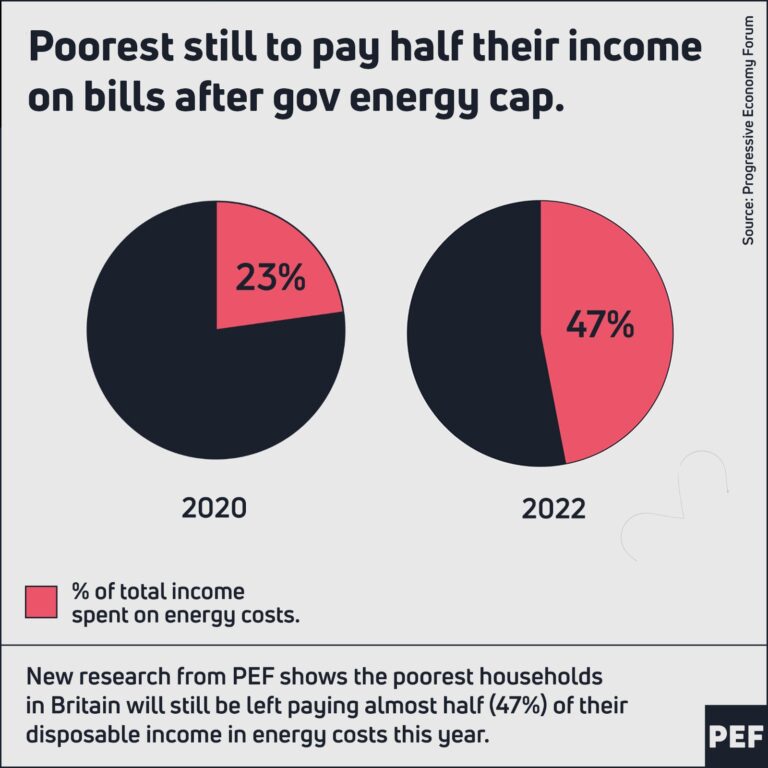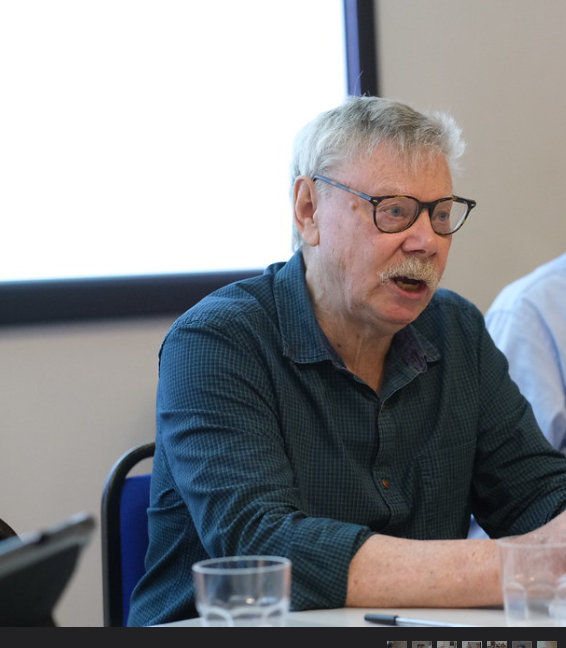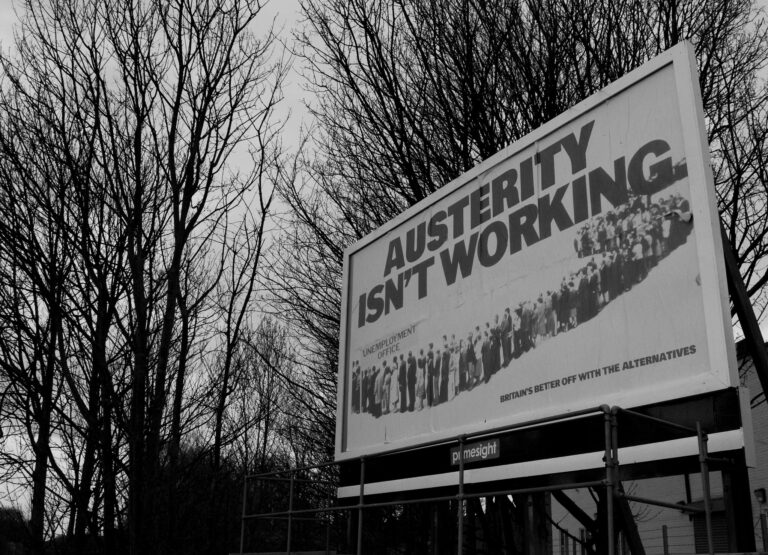This week a number of PEF Council members alongside figures from across economics, environmentalism and other fields signed this open letter to the governor of the Bank of England. The full text is reproduced below.
Dear Andrew Bailey,
Congratulations on your appointment as Bank of England governor. We wish you all the best in your new role.
You are taking up this post at a time when the financial system faces a reckoning with the climate crisis. This decade will be a period of profound upheaval, as markets react to extreme weather events occurring with greater frequency and further interventions by governments to curb emissions. We applaud the work you have done at the PRA and FCA to advance understanding of the challenges ahead.
To mitigate the worst effects of the crisis and meet the goals of the Paris Agreement, the transition to a zero-carbon economy must be urgently accelerated. Governments bear the primary responsibility for driving this shift, via regulation, taxes, subsidies and public investment.
Central banks also have an essential role to play. While governments have committed to limit the global temperature rise to as near as possible to 1.5°C, the financial system – as the Bank has previously warned – is still financing emissions that will trigger runaway warming that exceeds 4°C. Unless financial flows are urgently reoriented, our efforts to address the climate crisis have no chance of success.
Banks and insurers, and the financial system as a whole, face catastrophic consequences if they fail to adapt. If warming is left unchecked, extreme weather events will cause devastating losses. And if markets fail to anticipate regulation that makes future activity unviable, carbon-exposed firms and their supply chains could see a sudden and significant drop in value.
Central banks’ regulatory regimes and monetary policy operations can guide the reallocation of capital, so that markets are aligned with the Paris climate goals as quickly and smoothly as possible. Given the UK’s position at the crossroads of global finance, the Bank of England’s role is especially important.
The Bank already has a strong foundation on which to build. The first stress tests on climate risk will help to identify potential shortfalls in firms’ ability to withstand shocks, and force them, where necessary, to change course. The move towards comprehensive disclosures of climate risks by banks and insurance companies will make it easier for investors to assess their exposure, issuers to reprioritise their long-term investment strategies and for regulators to identify weaknesses across the system. This has been galvanised globally by the Task Force on Climate-related Financial Disclosures, and UK adoption has been encouraged by the PRA’s new supervisory statement. The Bank has also pledged to disclose the climate-related financial risks across its entire balance sheet, we hope including assets purchased under its quantitative easing programme, which will set an important example to firms across the sector.
But due to the short time horizons of most actors and the methodological limitations inherent in quantifying climate risk, these measures alone are unlikely to be enough. This problem is outlined in the recent Bank of International Settlements and Banque de France publication, ‘The Green Swan’. For as long as the financial system is aligned with a temperature rise beyond 1.5C, it is exposed to unacceptable climate-related financial risks, both from extreme weather events and the effects of future shifts in policy. For central banks to effectively discharge their duty to protect financial stability, they must use all the tools at their disposal to realign finance with internationally-agreed climate targets. With the UK hosting COP26 this year, the world is looking to you to lead the way.
We believe that three specific steps would help to put the financial sector on the right path. Firstly, the Bank should work with the government to put climate-related disclosures on a mandatory footing as soon as possible, in order to provide a comprehensive picture of the financial sector’s exposure. Secondly, we urge you to lead by example, and pledge to exclude fossil fuel assets from the Bank’s future bond purchases and collateral framework, starting with any exposures to coal. This will send a powerful signal that holding these assets undermines long-term financial stability, and is incompatible with the Paris goals. Finally, we urge you to consider adjusting the Bank’s macroprudential framework, so that the risks associated with high-carbon loans are more accurately reflected in the amount of capital banks hold against them.
Given the implications of climate change and the low carbon transition for financial and price stability, the above actions clearly fall squarely within the mandate of the Bank. You can count on our support in your efforts to respond to the climate crisis, and we look forward to hearing about your plans.
Yours sincerely,
Fran Boait, executive director, Positive Money
Miatta Fahnbulleh, chief executive, New Economics Foundation
Doug Parr, chief scientist and policy director, Greenpeace
Ulrich Volz, director, SOAS Centre for Sustainable Finance
Kate Levick, programme leader, E3G
Prashant Vaze, head of government & policy, Climate Bonds Initiative
Nick Robins, professor in practice for sustainable finance, LSE Grantham Research Institute
Sir David King, partner, SYSTEMIQ
Willem Buiter, visiting professor of international and public affairs, Columbia University
Dr Jane Goodall DBE, founder, the Jane Goodall Institute
Rosalyn Schofield, member, Committee on Climate Change Adaptation Committee
Steve Waygood, chief responsible investment officer, Aviva Investors
Michael Izza, chief executive, Institute of Chartered Accountants in England and Wales
Martin Shaw, chief executive, Association of Financial Mutuals
Paul Nowak, deputy general secretary, Trade Union Congress
Yanis Varoufakis, professor of economics, University of Athens
Zamzam Ibrahim, president, National Union of Students
Steven Croft, Bishop of Oxford, Church of England
Maggie Rae, president, Faculty of Public Health
Adam Tooze, director, European Institute
Bevis Watts, chief executive, Triodos Bank UK
William Blyth, associate fellow, Chatham House
Jenna Hegarty, deputy director, policy and advocacy, RSPB
Georgina Mace, professor of biodiversity and ecosystems, UCL
Keith Bell, professor of smart grids, University of Strathclyde
Rebecca Willis, professor in practice, Lancaster Environment Centre, Lancaster University
John Barry, professor of green political economy, Queens University Belfast
Benjamin Sovacool, professor of energy policy, University of Surrey
Dale Southerton, director, Cabot Institute for the Environment, University of Bristol
Ben Caldecott, director, Oxford Sustainable Finance Programme, Oxford University
Fr Damian Howard SJ, provincial superior, British Jesuits
Mardi Mcbrien, managing director, Climate Disclosure Standards Board
Paul Simpson, chief executive officer, Carbon Disclosure Project
Lauren Compere, managing director, Boston Common Asset Management
Jonathan Porritt, founder & director, Forum for the Future
Hector Politt, director, Cambridge Econometrics
Bill McKibben, co-founder, 350.org
Thomas Hale, associate professor of global public policy, Blavatnik School of Government, Oxford University
John Muellbauer, professor of economics, Oxford University
Nadia Ameli, principal research fellow, UCL Institute for Sustainable Resources
Kate Raworth, senior teaching associate, Environmental Change Institute, Oxford University
Ashley Taylor, senior private sector advisor, Christian Aid
Ann Pettifor, director, Policy Research in Macroeconomics
Jo Pike, chief executive, Scottish Wildlife Trust
Matthias Kroll, chief economist, World Future Council
Paul Gambles, managing director, MBMG Investment
Danny Dorling, professor of geography, Oxford University
Janie Oliver, executive director, Ecumenical Council for Corporate Responsibility
Louisa Davison, steering group, Citizens’ Climate Lobby UK
Mark Blyth, professor of international economics, Brown University
Tim Jackson, director, Centre for Understanding of Sustainable Prosperity
Shaun Spiers, executive director, Green Alliance
Peter Sweatman, chief executive, Climate Strategy & Partners
Alberto Botta, senior lecturer in economics, University of Greenwich
Jason Hickel, senior lecturer, Goldsmiths, University of London
Gerhard Kling, chair in finance, University of Aberdeen
Rens Tilburg, director, Sustainable Finance Lab
Andrew Denis, fellow emeritus, Department of Economics, City, University of London
Felix FitzRoy, emeritus professor, School of Economics & Finance, University of St Andrews
Panicos Demetriades, professor of financial economics, University of Leicester
Jonathan Michie, professor of innovation & knowledge exchange, Oxford University
Hugues Chenet, honorary senior research fellow, Institute for Sustainable Resources, UCL
Phil Haynes, professor of public policy, University of Brighton
Rick Van Der Ploeg, professor of economics, Oxford University
David Tyfield, reader in environmental innovation and sociology, Lancaster University
Julia Steinberger, professor of social ecology and ecological economics, University of Leeds
Johan Frijns, director, BankTrack
Steve Keen, honorary professor, UCL
Christine Cooper, chair in accounting, University of Edinburgh Business School
Ozlem Onaran, professor of economics, University of Greenwich
Ioannis Ioannou, associate professor, London Business School
Josh Ryan-Collins, head of research, UCL Institute for Innovation and Public Purpose
Jacob Funk Kirkegaard, senior fellow, Peterson Institute for International Economics
David Comerford, lecturer in economics, Strathclyde Business School
Eric Lonergan, economist
Jeremy Leggett, founding director, Solarcentury
Justin Guay, director global climate strategy, The Sunrise Project
Victor Anderson, Global Sustainability Institute, Anglia Ruskin University
Maria Nikolaidi, senior lecturer in economics, University of Greenwich
Neil Lancastle, senior lecturer, Department of Accounting and Finance, De Montfort University
Anna Laycock, chief executive officer, Finance Innovation Lab
Oliver Greenfield, convenor, Green Economy Coalition
Yannis Dafermos, lecturer in economics, SOAS University of London
Paul De Grauwe, John Paulson Chair in European Political Economy, LSE
Sophie Neuburg, executive director, Medact
Daniela Gabor, professor of economics and macro-finance, University of the West of England
Matthew Olczak, senior lecturer, Aston Business School, Aston University
Dimitri Zenghelis, visiting research fellow, LSE Grantham Research Institute
Jay Cullen, professor of corporate law and financial regulation, University of York
Molly Scott-Cato, professor of green economics, University of Roehampton
Peter Rice, managing director, Clearpoint Advisors
Andrew Jackson, research fellow, Centre for the Understanding of Sustainable Prosperity
Daniel Bailey, senior lecturer, Manchester Metropolitan University
Richard Murphy, professor of practice in international political economy, City University, London
Patrick Allen, chair and founder, Progressive Economy Forum
Kjell Kühne, director, Leave it in the Ground Initiative Catherine Howarth, chief executive, ShareAction
Victoria Chick, emeritus professor of economics, UCL
Scott Kelly, research director, Institute for Sustainable Futures
Nicky Bull, chair, Operation Noah
Mark Campanale, founder & executive chair, Carbon Tracker Initiative
Photo credit: Flickr/It’s No Game.








